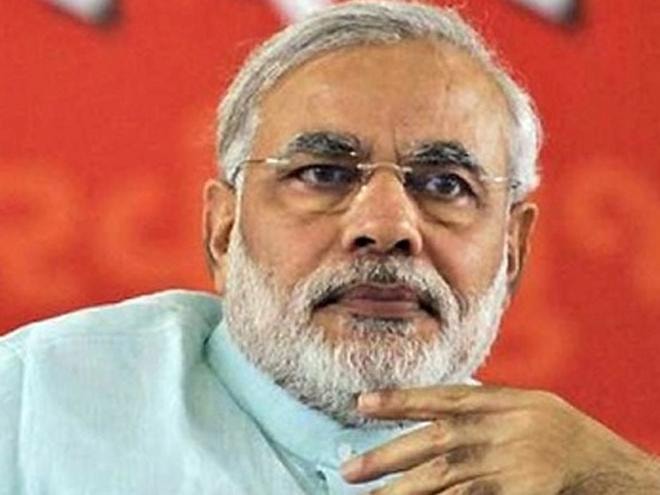India: Who will take the lead in the country?
India has completed the 16th Lok Sabha elections as scheduled. The election process was divided into 9 phases, lasting more than a month, starting from April 7 to May 12 in 28 states and union territories to directly elect 543 members of the House of Representatives.
This is considered the world's largest election, with 814.5 million people eligible to vote, many
 |
| Mr. Narendra Modi is expected to become Prime Minister of India. (Source: Asiasentinel) |
On May 16, the new election results were announced and on May 31, the 15th House of Representatives will end, paving the way for the new House of Representatives to take up legislative duties.
According to the Indian Constitution, the House of Representatives has 545 members, of which 543 are directly elected from the constituencies and 2 members are appointed from the British Indian community. Only the party that wins a minimum majority of 272 seats can form an independent government. Otherwise, the parties must form a coalition or seek outside support from one or more parties to have enough seats as prescribed to be allowed to form a government.
Previous opinion polls, as well as polling stations during the final phase of voting on May 12, all showed that the National Democratic Alliance (NDA), led by the Bharatiya Janata Party (BJP), would win the most seats in the Lower House of Parliament.
Three polls conducted before the election, conducted by Research group C-Voter, Cicero and Todays Chanakya, announced on the evening of May 12, all showed that the NDA would win enough majority to form the government. Specifically, Research group C-Voter predicted that the NDA would win 289 seats; Cicero predicted that the NDA would win about 261-283 seats; while Todays Chanakya predicted that the NDA would win 340 seats (error +14 seats), of which the BJP would win 291 seats (+14 seats), the ruling United Progressive Alliance (UPA), currently led by the Congress Party, would win only 70 seats (+9 seats), of which the Congress would win 57 seats (+9 seats), and other parties would win 133 seats (+11 seats).
If the poll results are correct, then the BJP-led NDA will definitely form the government.
Mr. Niranjan Sahoo, senior fellow at the Observer Research Foundation (ORF) also commented that the NDA alliance, led by the BJP, will take the leadership flag in India and Mr. Narendra Modi, Chief Minister of Gujarat state, will become Prime Minister.
According to expert Sahoo, Mr. Modi has been very successful in promoting economic development in Gujarat state. Under his leadership, Gujarat has continuously achieved double-digit growth over the past decade, becoming the leading state in the Indian economy. This achievement has contributed significantly to Mr. Modi's reputation and the BJP has benefited by choosing him as the Prime Minister candidate to lead the election campaign. As a decisive person, if he becomes Prime Minister, Mr. Modi will promote the implementation of policies faster and stronger.
In the future, the new government will have a lot of work to do, but in the immediate future, it must focus on promoting economic growth, creating jobs, controlling inflation, and fighting corruption. Of course, foreign policy is a big area, in which the policy towards neighboring countries such as Nepal, Bangladesh, especially China, Pakistan... will be of interest to the new government.
It is clear that the BJP has emerged on the current Indian political “chessboard”, not only because of Mr. Modi’s role, but also because the party has benefited from the declining reputation of the UPA Government. The economy has been continuously declining over the past few years, inflation, budget and current account deficits have increased, the rupee has depreciated, corruption has spread… causing the UPA Government to lose its strength.
However, politics in India is unpredictable and often has surprises at the last minute. Indian media also noted that many previous polls were wrong when predicting BJP wins in the two general elections in 2004 and 2009. Therefore, all current predictions are for reference only, the exact answer must wait for the official election results to be announced on May 16. Indian voters are eagerly waiting for a stable government to bring the economy back to its previous miraculous growth levels./.
According to VNA






